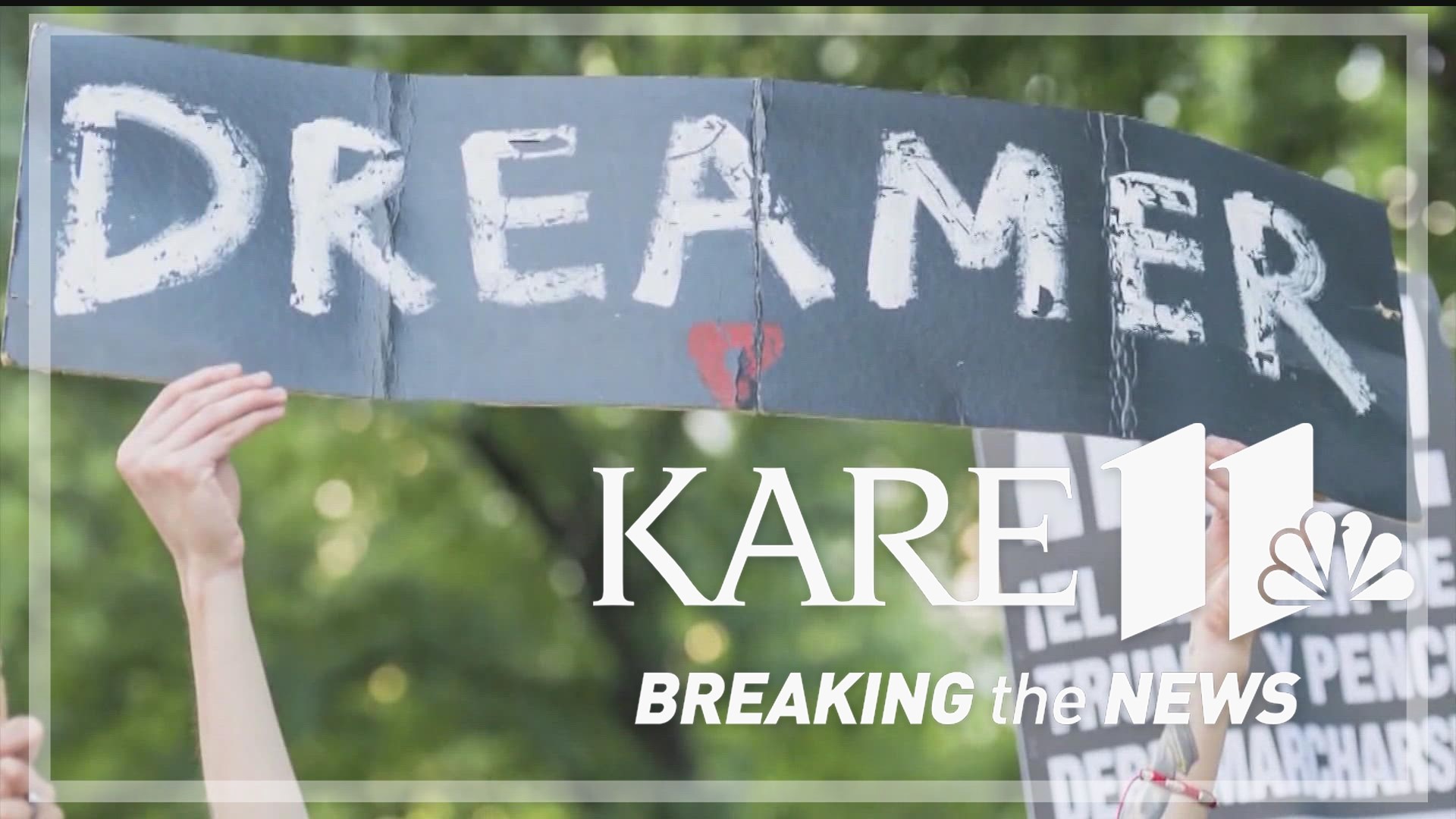ST PAUL, Minn. — It's been 10 years since President Barack Obama introduced the Deferred Action for Childhood Arrivals policy, also known as DACA.
For 29-year-old Carolina Ortiz, who spends her days helping the Latino community in Minnesota with COPAL MN, it's bittersweet.
"What's your own personal story when it comes to DACA?" asked KARE 11's Charmaine Nero.
"I remember when I still got my permit in 2012, it was a life-changing event for myself, for my family. For the first time, I was able to get a well-paying job," said Ortiz, who is also a DACA recipient.
DACA allows hundreds of thousands of young undocumented immigrants who were largely raised in the U.S. to apply to work and study in the U.S. without fear of being deported.
Since 2012, more than 825,000 people have been granted DACA, but there have been many challenges throughout the years.
"What is the current state of the DACA program?" asked Nero.
"The current state of DACA has been the same for the past decade," said Ortiz. "It's been ups and downs not knowing what will happen," she said. "We apply, we reapply and we're not sure if it will be there the next year, so it's always really limbo and living in constant anxiety, fear."
"It's probably one of the most complex legal scenarios right now," said Veena Iyear with the Immigrant Law Center of MN.
Iyer says DACA remains in jeopardy, as a current challenge to the policy is now in the 5th Circuit Court of Appeals, and a court decision in that case is blocking new DACA applicants from getting approved.
"In that case, several states have claimed that DACA is illegal, and that the president didn't have the power to create DACA. And in that case, the Texas judge found that, but the decision has been stayed while the case is on appeal," said Iyer. "In addition, there is litigation that is happening in New York that the court ordered that US Citizen and Immigration Services (USCIS) accept new DACA applications, and decide them, but that's been on hold as a result of the Texas litigation," said Iyer.
RIght now, the DACA program is not available for everyone.
For eligibility, recipients must have arrived in the United States prior to June 15, 2007.
"We are at the point where hundreds of undocumented kids, who are graduating high school this year, are not eligible for DACA this year regardless of what the courts decide," said Iyer.
"Why is it so important to have DACA in place?" asked Nero.
"We need a path to not live in limbo," said Ortiz. "Life is passing by, and right now, we continue to just not know what's going to happen with DACA."
"What does that look like if there was a decision to take this program away, even for those that already have it?" asked Nero.
"That would be devastating. That's a big fear that I have, and I think about it every time I renew, and I would I have to leave my job, figure out if I'm going back to Mexico," said Ortiz. "It was really heartbreaking because I didn't feel like it's where I belong, but when I came back, I felt like I didn't belong here either — just because there are so many things I can't do," said Ortiz.
President Biden issued a statement recently saying, "For more than two decades, efforts to pass legislation providing a durable solution for Dreamers have failed." He went on to say, "On the ten-year anniversary of DACA, the Biden-Harris Administration celebrates DACA recipients and again calls on Congress to pass legislation to protect and honor Dreamers who make our country stronger."
For the full statement, visit the link here.
Watch more local news:
Watch the latest local news from the Twin Cities in our YouTube playlist:

